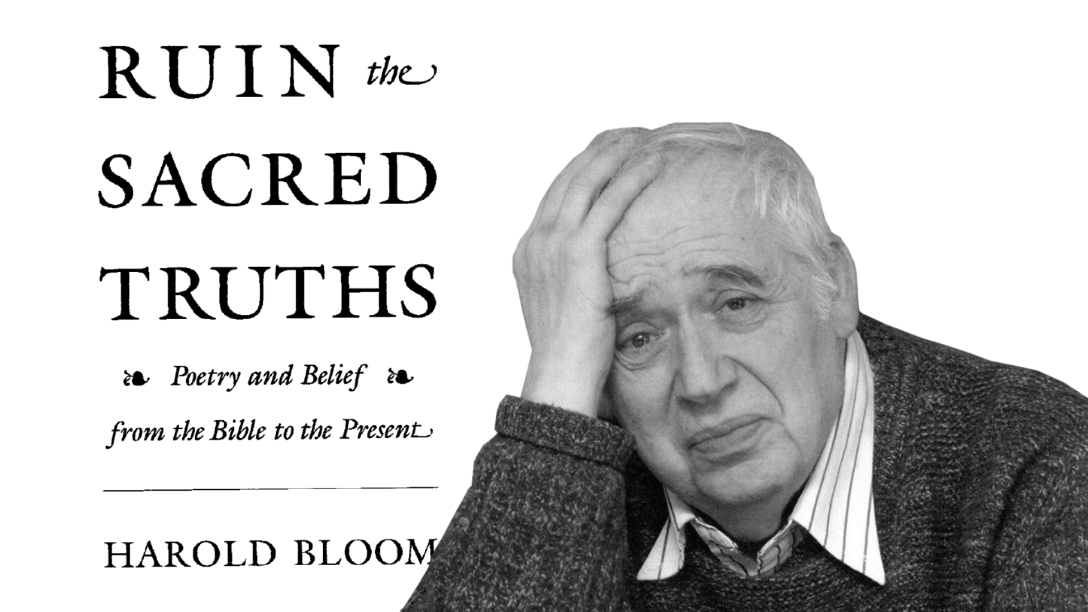SOMEWHERE about the year 100 B.C.E., a Pharisee composed what tradition has called the Book of Jubilees, an exuberant title for quite a bad piece ofwriting. This garrulous work is also known as the Little Genesis, an odd naming since it is much longer than Genesis and covers Exodus as well. I don't enjoy reading… Continue lendo “Ruin the sacred truths: poetry and belief from the Bible to the present” – Harold BLOOM
Tag: Percy Bysshe Shelley
John Keats: documentary (2014)
John Keats (31 October 1795 – 23 February 1821) was an English poet of the second generation of Romantic poets, with Lord Byron and Percy Bysshe Shelley, although his poems had been in publication for less than four years when he died of tuberculosis at the age of 25. https://www.youtube.com/watch?v=xtsZ79kt4Iw They were indifferently received in… Continue lendo John Keats: documentary (2014)
Documentary: The Romantics (2006)
Peter Ackroyd, writer, historian and presenter of The Romantics, explains how Romantic poetry brought about a revolution in ideas in the early 19th century that changed the face of the world today https://www.youtube.com/watch?v=PpL77C2RNVk This documentary looks at a group of visionary writers who changed the way we see the world - the Romantics - and… Continue lendo Documentary: The Romantics (2006)
“A revolta dos dândis” – Albert CAMUS
Mas ainda é a hora dos homens de letras. O romantismo, com sua revolta luciferina, só servirá realmente às aventuras da imaginação. Como Sade, ele se separará da revolta da antiguidade pela preferência dada ao mal e ao indivíduo. Ao ressaltar seus poderes de desafio e de recusa, a revolta nesse estágio esquece seu conteúdo… Continue lendo “A revolta dos dândis” – Albert CAMUS
“O equívoco do gênio” – CIORAN
Toda inspiração procede de uma faculdade de exagero: o lirismo – e todo o mundo da metáfora – seria uma excitação lamentável sem esse ardor que incha as palavras até fazê-las estourar. Quando os elementos ou as dimensões do cosmo parecem demasiado reduzidos para servir de termos de comparação a nossos estados, a poesia só… Continue lendo “O equívoco do gênio” – CIORAN
Cioran e Keats: o imperativo da intensidade e poéticas do grotesco
Segundo o tradutor Péricles Eugênio da Silva Ramos, o princípio da intensidade desempenha um papel fundamental na poética de John Keats (1795-1821). Em 21 de dezembro de 1817, o poeta inglês escreveria, em carta ao irmão George, que "a excelência de toda arte está em sua intensidade, capaz de fazer o desagradável ('all desagreeables') evaporar… Continue lendo Cioran e Keats: o imperativo da intensidade e poéticas do grotesco
“Mihail Eminesco” – E.M. Cioran
Este breve ensaio compõe a primeira versão do Breviário de decomposição (1949), o début literário em língua francesa de Emil (doravante E. M.) Cioran, tendo sido excluído da versão final que ganharia, em 1950, o Prix Rivarol para jovens escritores estrangeiros. A versão inicial do Précis, intitulada Exercices négatifs, foi publicada postumamente, em 2005, numa… Continue lendo “Mihail Eminesco” – E.M. Cioran
Abaixo as Verdades Sagradas – Harold BLOOM
POR VOLTA DO ANO 100 ANTES DA ERA COMUM, um fariseu compôs o que a tradição chamou o Livro dos Jubileus, título exuberante para obra tão medíocre. Esse texto prolixo é também conhecido como o Pequeno Gênesis, uma estranha denominação, pois é muito mais longo do que o Gênesis e compreende também o Êxodo. Não… Continue lendo Abaixo as Verdades Sagradas – Harold BLOOM
“Art & Civilization” – John DEWEY
Art is more moral than moralities. For the latter either are, or tend to become, consecrations of the status quo, reflections of custom, reënforcements of the established order. The moral prophets of humanity have always been poets even though they spoke in free verse or by parable. John Dewey, Art as Experience (1934) The implicit… Continue lendo “Art & Civilization” – John DEWEY
Iluminismo & Romantismo – Harold BLOOM
A NOSSA DEFINIÇÃO CLÁSSICA daquilo que o sublime literário reivindica pode ser encontrada nas sentenças iniciais de The romantic sublime O sublime romântico de Thomas Weiskel: A alegação essencial do sublime é que o homem pode, no sentimento e na linguagem, transcender o humano. O que se encontra além do humano, se é que algo… Continue lendo Iluminismo & Romantismo – Harold BLOOM











Você precisa fazer login para comentar.